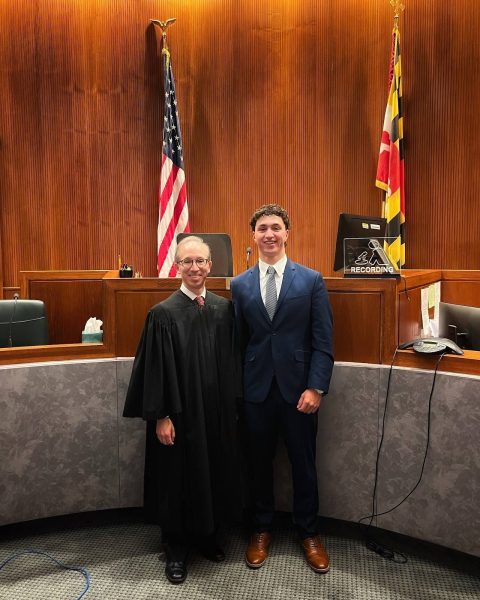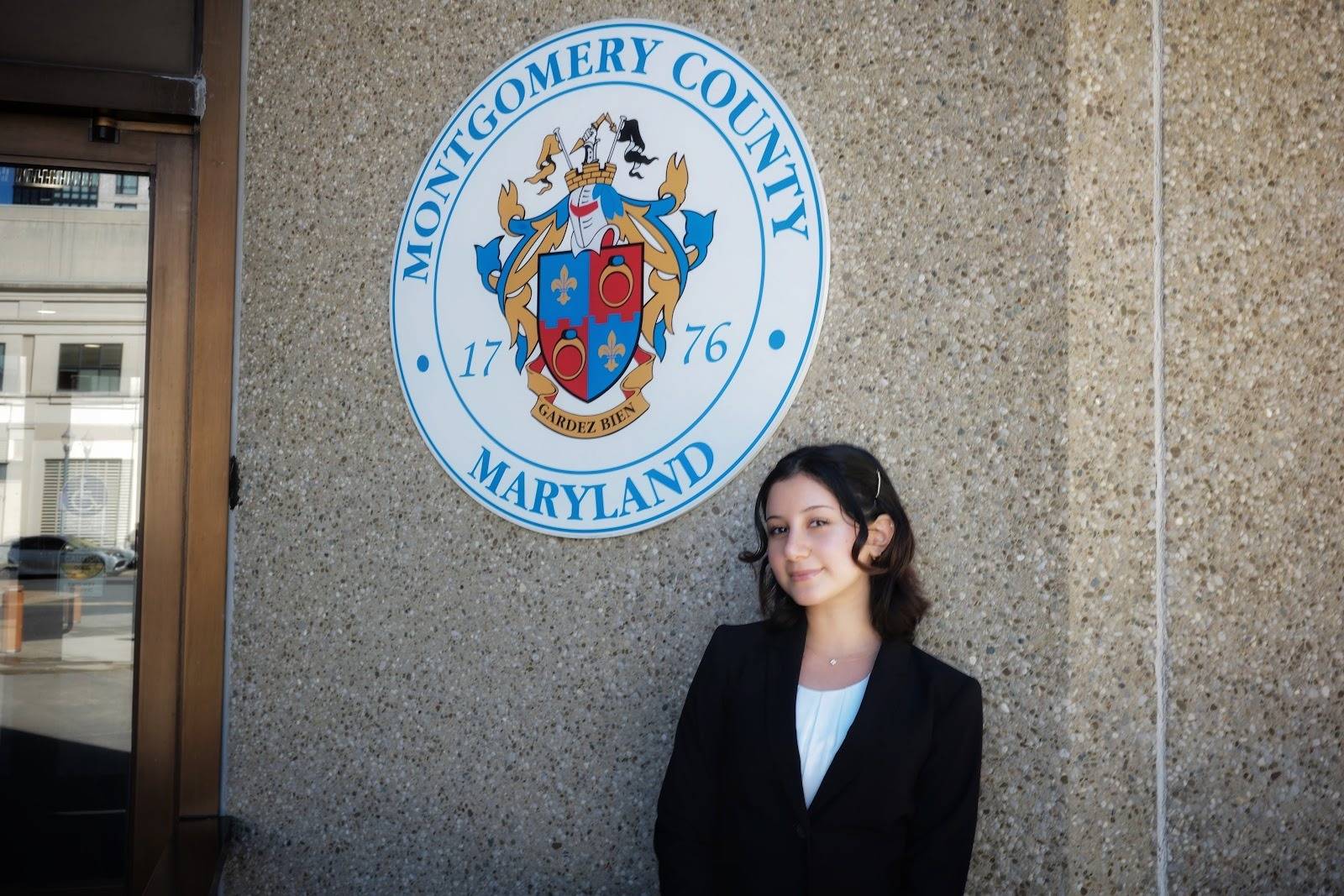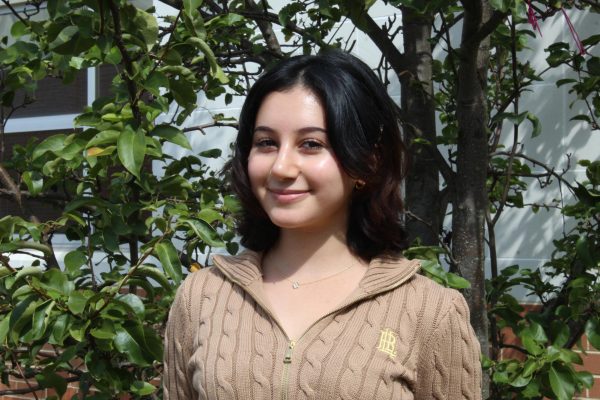Court is now in session! Senior Naveh Cohn and I have taken on the bench interning for Circuit Court judges. Internships such as ours are hard to come by and are rarely available to high school students. As a result, our experiences have begun preparing us for our prospective careers in the law.
Interning for Administrative Judge James A. Bonifant, I’ve fostered a new perspective on the law through witnessing court proceedings. Throughout the week, I make my way to the court directly after school, since I prefer having a full academic schedule.
Cohn, on the other hand, has an abbreviated schedule that permits him to leave campus early for his internship under Judge Louis M. Leibowitz. This way, Cohn spends more time in court than in school, which he sees as a chance to gain professional experience in a more efficient way than regular class instruction.

When pursuing a career in the law, exposure is key. The more experience you have, the better you’ll be. Memorizing key texts doesn’t ensure your success in the field if not supplemented with hands-on experience.
Knowing the facts doesn’t mean you’ll know how to apply them, which is why I spend as much time as I can watching trials. Cohn’s advisors have told him that most people attending law school have never sat in a courtroom before, which would give him an upper hand in law school.
In class and in applications, an internship may be the component that sets you apart from your peers. When applying to a law or even undergraduate school, admission officers like to see that a student has experience beyond the books. I came into the courthouse with prior knowledge of legal books and landmark cases, but most of my learning has been done within its glass doors.
Administrative Judges, such as Judge Bonifant, have different responsibilities from Associate Judges. Judge Bonifant conducts initial hearings (arraignments) and is responsible for assigning cases to the dockets of other Judges.
Thus, my duties as Judge Bonifant’s intern are more centered around scanning Administrative documents, attending the Judge’s scheduling meetings, and witnessing arraignments, if not sitting in at other trials. When I have time off, I’ll spend entire days watching trials or working in chambers. For some serious cases, such as murder trials, I’ll follow up almost daily to see how the trial is proceeding.
On the other hand, Judge Leibowitz, an associate judge, takes on trials which Cohn has the opportunity of watching. His honor is currently presiding over family cases. While his honor is on the bench, Cohn sits beside the Judge’s clerks, taking notes or doing calculations. When off the bench, Cohn watches other trials to see how other case types are tried.
Beyond judicial duties, there is much to learn and familiarize yourself with throughout the building. Cohn and I both keep up to date with ongoing proceedings and have acquainted ourselves with the staff present in the building. We have learned that there are many different rules in the law that can be learned by staying engaged.
One of the most valuable aspects of my internship experience is the connections that I have fostered. Whether sitting in trial or visiting the cafeteria, I am approached by new and previous acquaintances who always stop to chat.
Cohn, for example, met Judge Leibowitz at his local synagogue and has since then fostered a close relationship with his mentor, whom he regards as benevolent to the people before him. He says that Judge Leibowitz makes parties recite the kindness pledge after he delivers his verdict, since he is aware that many have issues communicating.
While sitting in on bond hearings at District Court, I had the opportunity to meet Judge Michael O. Glynn, who happened to be my neighbor. I was taken aback during one bond hearing regarding a robbery where Judge Glynn was familiar with the store that was robbed and the owners of the shop, a local family. On other occasions, watching trials, jury selection or reading Judge Bonifant’s mail reminds me of the intrinsic connection between the law and the people.
These experiences have shown me that the law is much closer than I previously imagined, that judges and attorneys aren’t always as stereotypically stern and austere as commonly regarded, but are part of our community with connections to the public as well.
I’ve learned that judges, whose seats are highest in the room, referred to as honorable and recognized each time they enter or leave the courtroom, are not above any other being; they are simply fulfilling their duty as administrators.
This is not to say that judges are friendly and warm all the time; sometimes they need to be quite stern. Judge Bonifant, for example, has surprised me at times with his stark change in character in chambers versus on the bench. There are times when parties may be misbehaving, and with the court being an emotional space, judges need to restore order.
Every person I’ve met at the courthouse has worked hard to get where they are, and the atmosphere is amazing. Sometimes expectations don’t go as planned. Of the attorneys and judges I’ve met, only a select few knew they wanted to pursue law as a career, while the majority found their place by chance.
Internships are important for high schoolers to expose themselves to future professions before entering the workforce, law-related or not. I’ve known since childhood that I wanted to become an attorney, and in late adolescence, the same notions still ring true. Cohn and I both plan to earn Juris Doctorates, law degrees, after completing undergraduate school.
Yet, without this experience, I might not have known that my childhood dream would be suitable for me. The justice system is a complex world. To have some semblance of how it works, it’s very important to get your foot in the door.









